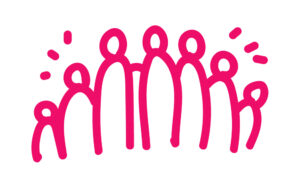LGBT equality is the main priority of my political agenda. However, my professional experience is closely linked to the broader field of human rights as well. As the Chairman of the Human Rights Committee, I have identified five priorities that I would like to achieve during this parliamentary term.

1. Active Legislation
The Parliament’s Statute provides the Human Rights Committee with the prerogative not only to assess the submitted draft laws from the from the human rights perspective, but also to initiate certain legislative processes. It is important to take leadership in order to address various human rights issues, such as legalizing gender-neutral civil partnerships, regulating legal gender recognition, allowing spelling of personal names in non-Lithuanian letters and safeguarding the rights of different national minorities. The Human Rights Committee also has an important role in responding to the post-pandemic challenges of gender-based violence.

2. Parliamentary Oversight
In Lithuania institutions that monitor human rights situation (e.g. different offices of ombudspersons) are sometimes mistakenly considered to implement the public policy in the fields of gender equality and equal opportunities. It is important to strengthen cooperation with and responsibility of the Ministry of Social Security and Labor, so that human rights policies become one of the priorities of the executive institutions.

3. Empowering Ombuds’ Institutions
Lithuania has an extensive network of ombudspersons’ institutions that are accountable to the Parliament. Funding for these institutions is often insufficient, while functions performed by different institutions are not always clear. Some important areas not covered at all and some areas are overlapping. It is necessary to ensure effective functioning of the National Human Rights Institution by enabling all ombudspersons’ institutions to carry out effective human rights monitoring in Lithuania.

4. International Recommendations
The implementation of human rights recommendations issued to Lithuania by international organizations is not currently effectively coordinated at the national level. Different ministries supervise implementation of these recommendations. Also, there is a lack of cooperation and coordination, no ambitious goals and no clearly defined criteria. These processes have to be overviewed by the Parliament, thus ensuring a clear division of responsibilities, inter-institutional cooperation and accountability of the executive.

5. Education on Human Rights
Addressing human rights challenges must primarily start with education by fostering respect for diversity at an early age. In cooperation with the Committee on Education and the Ministry of Education, Science and Sport, we must ensure that human rights issues are integrated into up-to-date curricula. Education about human rights is the key not only to an open society, but also the most effective solution to the epidemic of bullying and suicide.
